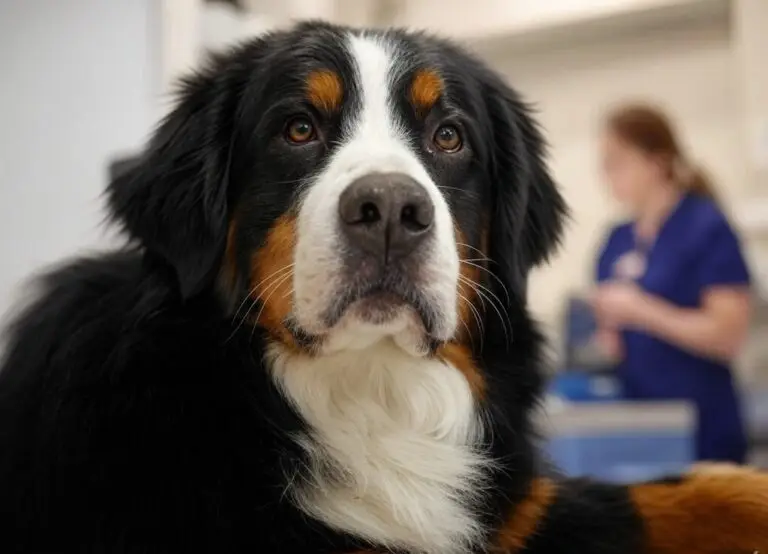Dog Eye Health Issues: Causes, Prevention, and Care
📌 Introduction
Your furry friend relies on their vision just as much as you do. But unlike humans, dogs can’t express discomfort the same way, making it crucial for you to stay vigilant about their eye health. Have you ever noticed your pup squinting, rubbing their face against the carpet, or developing discharge in their eyes? These subtle signs could indicate underlying dog eye health issues that, if left untreated, might lead to more severe complications.
From infections to age-related deterioration, a variety of factors contribute to eye problems in dogs. Fortunately, most issues can be prevented with proper care, a balanced diet, and routine veterinary visits. In this article, you’ll discover the common causes of dog eye health issues, how to spot warning signs early, and effective strategies to keep your dog’s eyes clear and healthy. 🐾
Table of Contents
🔍 Common Causes of Dog Eye Health Issues
1️⃣ Environmental Factors and Allergies 🌳
Just like you might experience watery eyes due to pollen or dust, your dog is susceptible to environmental irritants as well. Allergens such as grass, mold, dust, cigarette smoke, and household cleaning chemicals can trigger inflammation, leading to redness and excessive tearing.
🚨 Symptoms of Allergy-Related Eye Issues:
- Watery eyes (epiphora)
- Redness and irritation
- Frequent blinking or squinting
- Rubbing eyes with paws or against surfaces
✅ Prevention Tips:
- Keep your home dust-free and use air purifiers.
- Wipe your dog’s face with a damp cloth after outdoor activities.
- Avoid exposing them to smoke or strong fragrances.
- Consult your vet for antihistamines if allergies persist.
2️⃣ Infections and Bacterial Issues 🦠
Bacterial and viral infections can lead to serious eye problems. Conjunctivitis (pink eye) is one of the most common conditions, often caused by bacteria, viruses, or even foreign objects entering the eye.
🚨 Signs of an Eye Infection:
- Yellow or greenish discharge
- Swelling and redness around the eyes
- Increased blinking or eye discomfort
- Crusty buildup around the eyelids
✅ How to Prevent Infections:
- Regularly clean your dog’s eyes with a vet-approved eyewash.
- Ensure their bedding and toys are clean.
- Avoid allowing them to interact with infected animals.
- Seek veterinary care at the first sign of infection.
3️⃣ Eye Injuries and Trauma ⚠️
Dogs are naturally playful, but their curiosity can sometimes lead to eye injuries. Whether from roughhousing with other pets, running through thick brush, or scratching their eyes, injuries can lead to infections or long-term damage.
🚨 Signs of an Eye Injury:
- Squinting or keeping one eye closed
- Swelling around the eye
- Visible scratches or cloudiness in the cornea
- Excessive tearing
✅ What You Can Do:
- Examine your dog’s eyes regularly for scratches or foreign objects.
- If an injury occurs, flush the eye with saline solution and consult your vet.
- Consider protective dog goggles for high-energy or outdoor-loving dogs.
4️⃣ Breed-Specific Eye Problems 🐾
Certain dog breeds are more prone to genetic eye conditions due to their anatomy.
🐶 High-Risk Breeds and Their Common Issues:
- Pugs, Bulldogs, and Shih Tzus – Prone to corneal ulcers and dry eye (KCS) due to protruding eyes.
- Golden Retrievers and Labrador Retrievers – May develop progressive retinal atrophy (PRA).
- Cocker Spaniels – Susceptible to glaucoma and cataracts.
- Siberian Huskies – Can suffer from hereditary eye diseases.
✅ Prevention and Management:
- Regular veterinary eye exams are essential.
- Know your dog’s genetic predispositions and monitor for symptoms.
- Provide breed-appropriate care, including a nutrient-rich diet for eye health.
5️⃣ Age-Related Eye Conditions ⏳
As your dog ages, their vision naturally deteriorates. Cataracts, glaucoma, and retinal degeneration become more common.
🚨 Symptoms of Aging-Related Eye Conditions:
- Cloudy or bluish lens appearance
- Night blindness or bumping into objects
- Sensitivity to light
- Eye discomfort or pain
✅ How to Support Aging Eyes:
- Schedule regular senior dog wellness checks.
- Use antioxidant-rich supplements to support retinal health.
- Keep their living space free of hazards to prevent injuries.
🐕 How to Prevent Dog Eye Health Issues
1️⃣ Regular Eye Cleaning and Grooming 🧼
Keeping your dog’s eyes clean prevents infections and irritation.
📝 Best Practices for Eye Cleaning:
- Use a damp cloth or vet-recommended wipes to gently remove debris.
- Trim hair around the eyes to reduce irritation.
- Check eyes daily for unusual discharge, redness, or swelling.
2️⃣ Proper Diet for Eye Health 🥕
A well-balanced diet supports optimal eye health. Foods rich in vitamin A, omega-3 fatty acids, and antioxidants help maintain vision.
🍽️ Dog-Friendly Eye Health Recipe
| 🥗 Ingredient | 🌟 Benefits |
|---|---|
| 🥕 Carrots (chopped) | Rich in beta-carotene, supports vision |
| 🫐 Blueberries | High in antioxidants, reduces inflammation |
| 🐟 Salmon (cooked) | Omega-3 fatty acids for eye hydration |
| 🌿 Spinach (small portions) | Contains lutein, protects against cataracts |
3️⃣ Protect Your Dog’s Eyes from External Irritants 🌬️
- Avoid exposure to strong winds, smoke, and harsh chemicals.
- Use dog goggles for breeds prone to eye irritation during outdoor activities.
- Keep their environment clean to prevent exposure to allergens.
4️⃣ Regular Vet Checkups and Eye Exams 🏥
Routine vet visits help catch potential eye issues early. Ask your vet about:
- Annual eye health screenings.
- Protective measures for age-related deterioration.
- Recommendations for supplements that promote vision longevity.
📌 Frequently Asked Questions (FAQ) ❓
1️⃣ How do I know if my dog has an eye infection?
- Look for redness, swelling, pus-like discharge, and excessive blinking.
2️⃣ Can I use human eye drops for my dog?
- No, always use vet-prescribed eye drops as human formulas may contain harmful ingredients.
3️⃣ What is the best food for dog eye health?
- Foods rich in omega-3, beta-carotene, and antioxidants like carrots, salmon, and blueberries.
🎯 Conclusion
Taking care of your dog’s eyes is a lifelong commitment that requires vigilance, proper nutrition, and regular checkups. By implementing preventative measures, you can ensure your furry friend enjoys a lifetime of clear vision and comfort. Stay observant, act quickly at the first sign of trouble, and consult a veterinarian when in doubt. Your pup’s eyes will thank you! 🐶👀
💬 Has your dog ever had eye problems? Share your experience in the comments below! 📝


